Jul 24
Failed to save article
Please try again
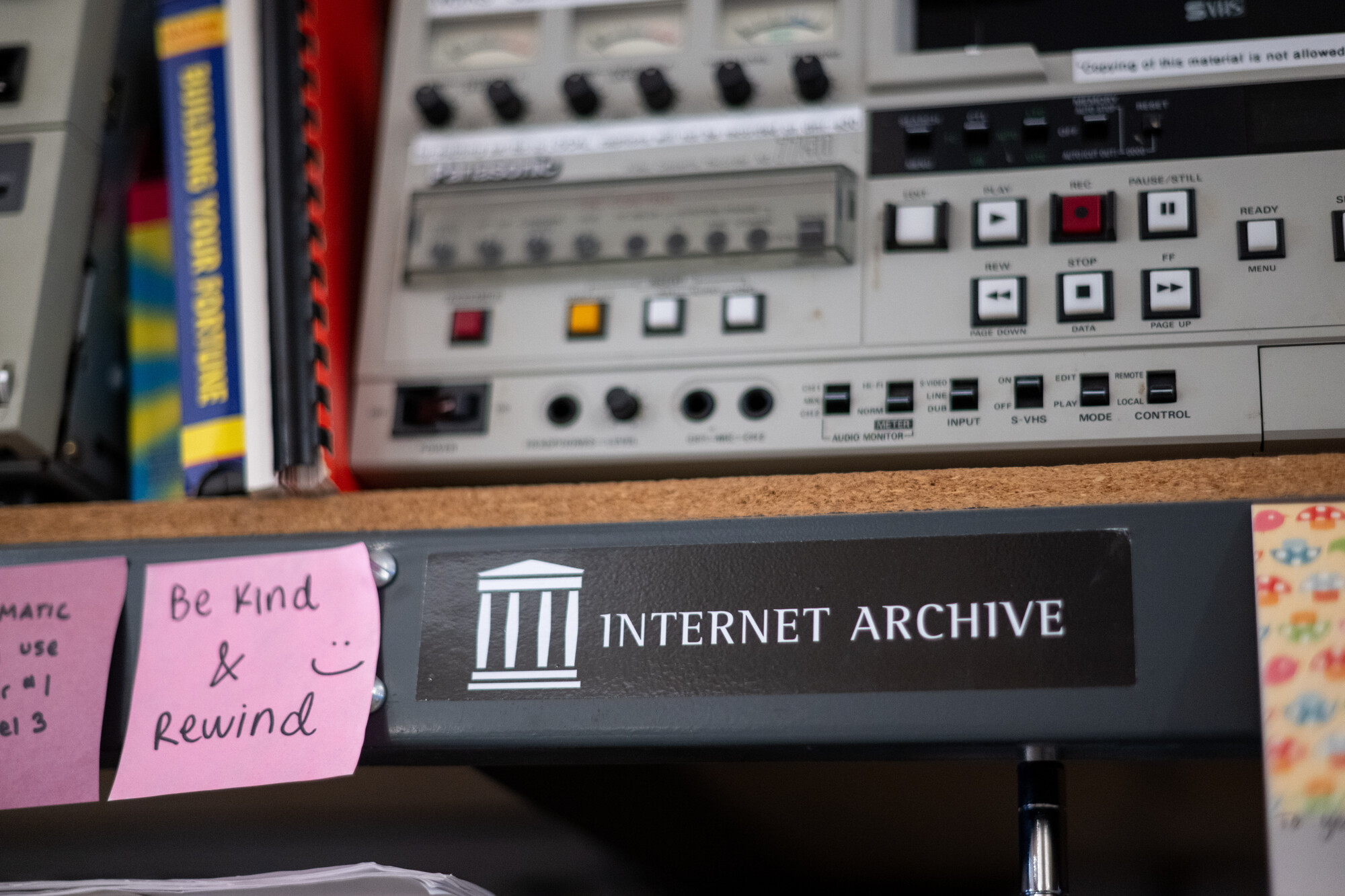
Various types of electronics sit on a shelf at the Internet Archive offices in San Francisco on March 24, 2023. The Internet Archive, thanks to its designation by California Sen. Alex Padilla, joins a network of over 1,100 libraries that make government documents accessible to the public. (Beth LaBerge/KQED)
The San Francisco-based Internet Archive now has federal depository status, joining a network of over 1,100 libraries that archive government documents and make them accessible to the public — even as ongoing legal challenges pose an existential threat to the organization.
California Sen. Alex Padilla made the designation in a letter sent Thursday to the Government Publishing Office, which oversees the program. In the letter, shared exclusively with KQED, Padilla praised the Internet Archive for its “digital focus” and said it “is leading the way when it comes to providing online library services.”
“The Archive’s digital-first approach makes it the perfect fit for a modern federal depository library, expanding access to federal government publications amid an increasingly digital landscape,” Padilla said in a statement to KQED. “The Internet Archive has broken down countless barriers to accessing information, and it is my honor to provide this designation to help further their mission of providing ‘Universal Access to All Knowledge.’”
Under federal law, members of Congress can designate up to two qualified libraries for federal depository status.
Internet Archive founder Brewster Kahle said that while the nonprofit organization has always functioned as a library, this new designation makes it easier to work with the other federal depository libraries. That, he said, is a service to everyone.
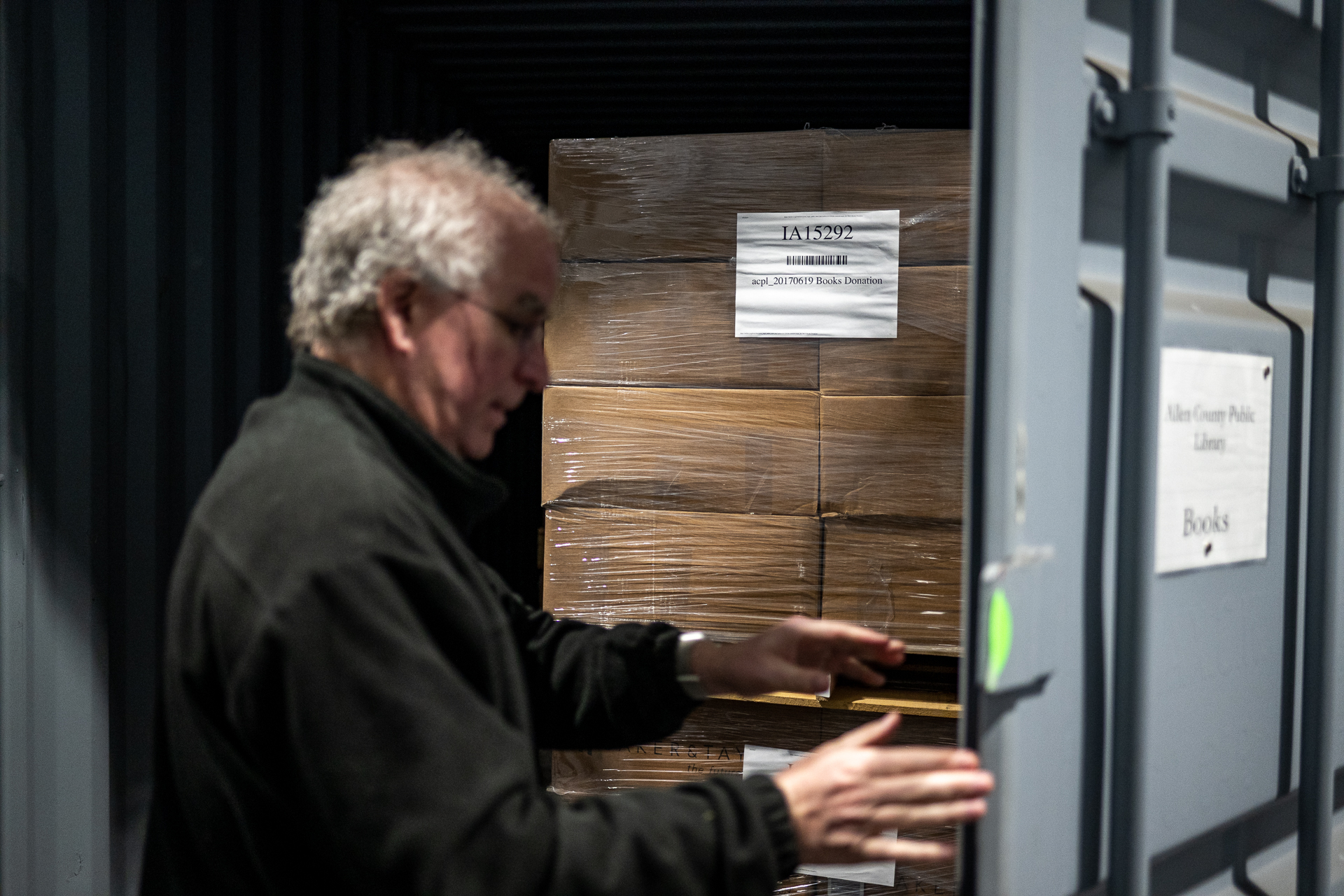 Brewster Kahle closes a storage container with books from the Allen County Public Library at an Internet Archive storage facility in Richmond on March 30. (Beth LaBerge/KQED)
Brewster Kahle closes a storage container with books from the Allen County Public Library at an Internet Archive storage facility in Richmond on March 30. (Beth LaBerge/KQED)“ I think there is a great deal of excitement to have an organization such as the Internet Archive, which has physical collections of materials, but is really known mostly for being accessible as part of the internet,” Kahle said. “And helping integrate these materials into things like Wikipedia, so that the whole internet ecosystem gets stronger as digital learners get closer access into the government materials.”
The Federal Depository Library Program was established by Congress in 1813, with the intention of ensuring that government records would be accessible to the American public. It includes maps, environmental reports, health studies, congressional records, newspapers and books.
These records account for “millions and millions of pages” that can take up entire floors of public libraries, Kahle said. San Diego’s public library gave up its federal depository status in 2020 because its government documents took up so much space and often went unused.
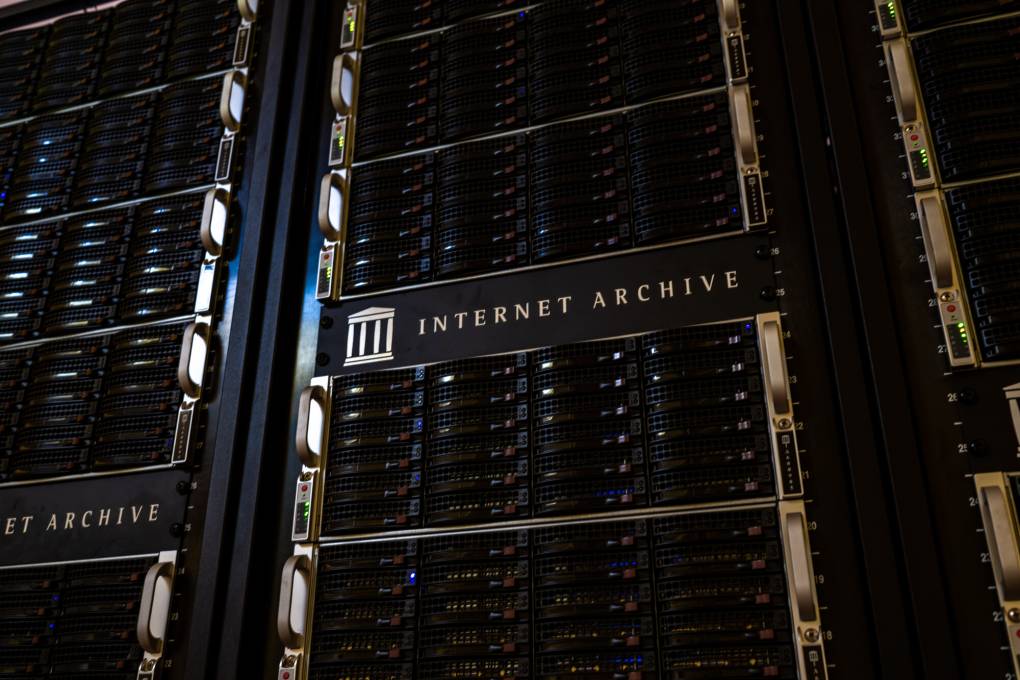
While documents stored on microfiche or microfilm are easy to copy, they aren’t easy to access. The GPO has been moving toward digital preservation since 2016 and runs an online database of government records, and in recent years, it has ramped up efforts to digitize the Federal Depository Library Program.
Participating libraries have largely pivoted to the GPO’s digital approach, but digitizing countless physical documents is a massive undertaking — one that the Internet Archive has experience with.
For years, the Internet Archive has helped libraries and other academic institutions in digitizing their collections and hosting them online. In 2022, it launched Democracy’s Library, a free online compendium of government research and publications.
Joining the Federal Depository Library Program is the next step in the evolution of Democracy’s Library, Kahle said. The Archive is “just doing what it’s always been doing,” but now, it’s more convenient.
“By being part of the program itself, it just gets us closer to the source of where the materials are coming from, so that it’s more reliably delivered to the Internet Archive, to then be made available to the patrons of the Internet Archive or partner libraries,” he continued.
 Laura Gibbs looks at memorabilia at the Internet Archive offices in San Francisco. (Beth LaBerge/KQED)
Laura Gibbs looks at memorabilia at the Internet Archive offices in San Francisco. (Beth LaBerge/KQED)The organization has faced legal challenges over some of its archival practices. Its Open Library was at the center of a yearslong legal battle after four major publishers sued the Internet Archive for temporarily lifting its waitlists in 2020 — instead of loaning its digital copies to one user at a time. By doing so, the publishers alleged, the Internet Archive illegally provided free e-books.
Last year, an appeals court upheld a 2023 federal court decision that ruled against the Internet Archive. The organization has had to remove more than half a million titles since the lawsuit started.
The Internet Archive has also been targeted by major music labels, including Sony Music Entertainment and Universal Music Group, over the Great 78 Project, an initiative to preserve 78 RPM records. Though most of the records are out of print, 4,000 of the 400,000 digitized recordings are copyrighted, including Bing Crosby’s “White Christmas.” The organization could owe upwards of $700 million in damages if the labels win the lawsuit — a financial hit that would threaten to shut it down.
“I think we’re really starting to understand, in our digital era, what it means for libraries to exist, to have copies of materials for the long term,” Kahle said. “To go and make those available is ever important.”
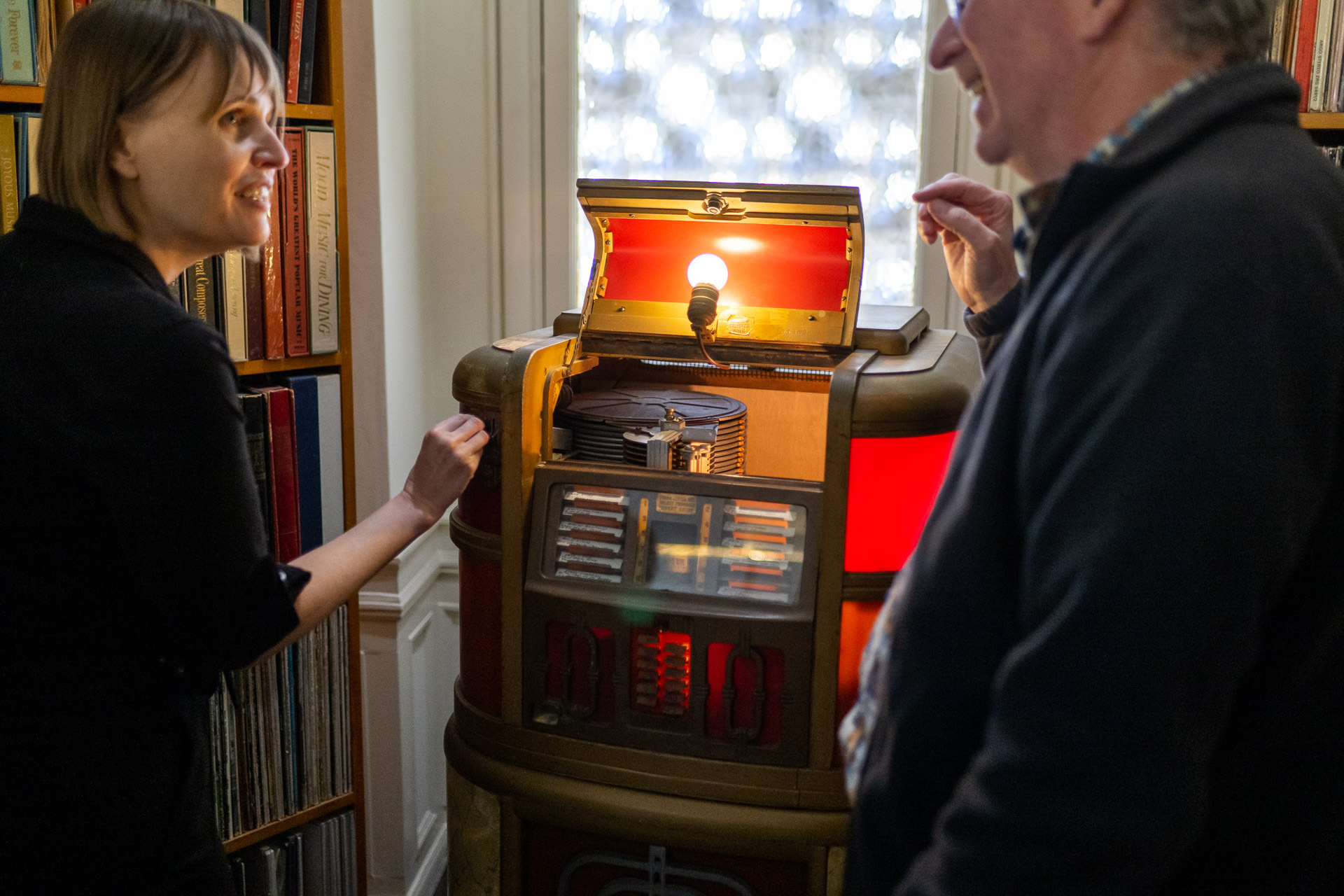 Brewster Kahle shows Amsterdam-based novelist Bette Adriaanse an early record player at the Internet Archive offices in San Francisco. (Beth LaBerge/KQED)
Brewster Kahle shows Amsterdam-based novelist Bette Adriaanse an early record player at the Internet Archive offices in San Francisco. (Beth LaBerge/KQED)The ongoing copyright conflicts have put the Internet Archive’s status as a library up for debate. The American Association of Publishers argues that the Internet Archive “is not a library,” but an “unlicensed digital copyrighting and distribution business.”
Others disagree, including a coalition of hundreds of authors. A group of current and former university librarians wrote an op-ed in support of the Internet Archive, calling the organization “the most significant specialized library to emerge in decades” and a “modern-day cultural institution built intentionally in response to the technological revolution.”
It’s unclear whether joining the Federal Depository Library Program would do anything to bolster the Internet Archive’s defense in copyright lawsuits. Kahle said that the designation doesn’t change the organization’s practices and clarified that government publications, such as environmental reports and congressional records, are not copyrighted, so they can be digitized, archived and distributed without issue.
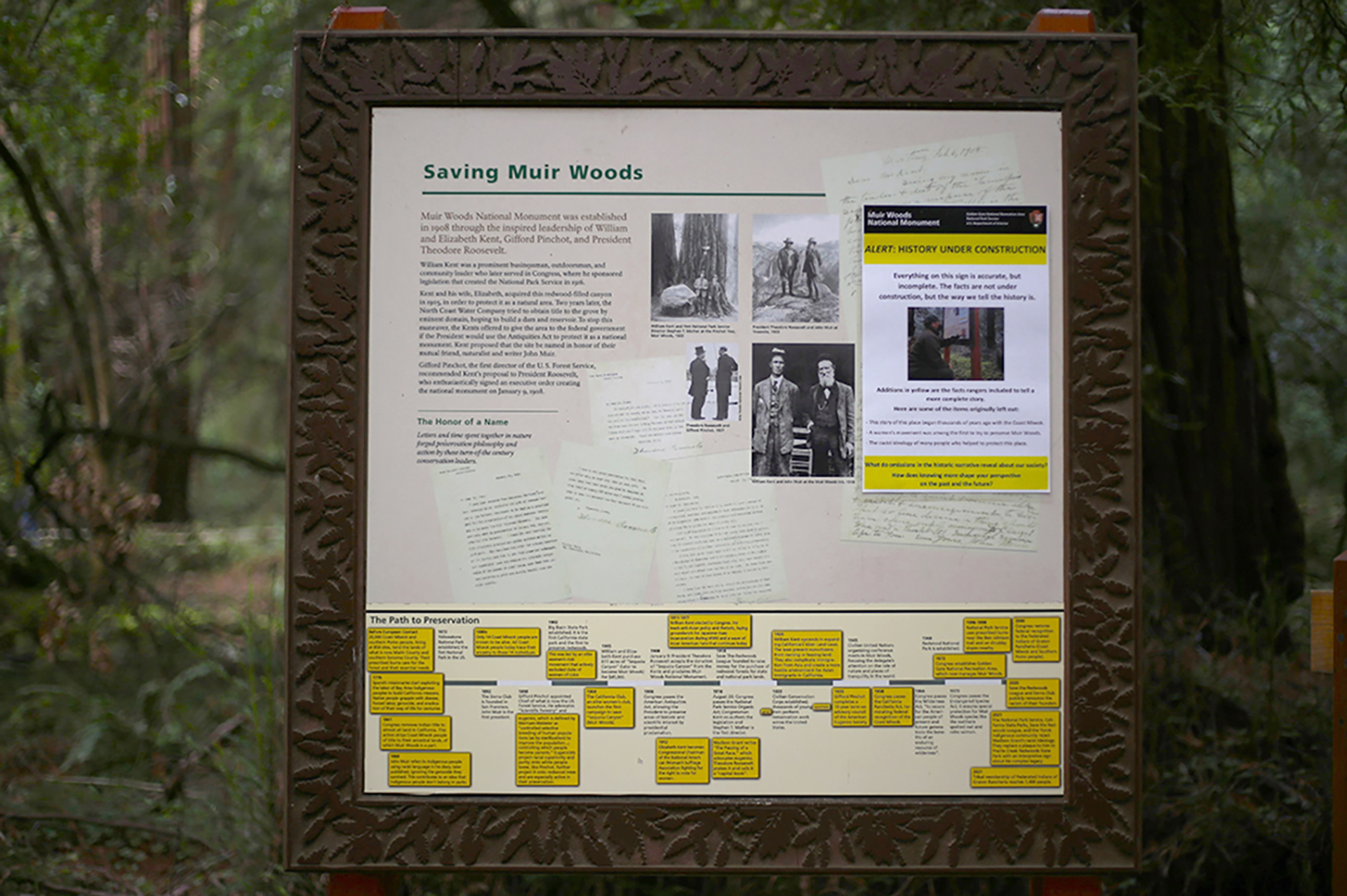
“And so they can be free flowing and be woven in the fabric of our knowledge ecosystem if they’re in digital form,” Kahle added. “So this kind of change of adapting to the digital era, it’s just another step, just the same way that we all adapted from print to microfilm, to CDs, to DVDs, and now, to digital. It’s just a natural step that we libraries are all going through.”
The Internet Archive also operates the Wayback Machine, which saves webpages across the internet and stores archived versions in a searchable online database. Following President Trump’s return to the White House, it scrambled to preserve government agencies’ pages that were being wiped in a purge of mentions of climate change, reproductive health, gender and sexuality and public health information.
Joining the Federal Depository Library Program, Kahle said, is part of the Internet Archive’s mission to keep knowledge accessible.
“Toward the fantasticness and vastness of what’s going on online, in October, the Internet Archive will hit a milestone of 1 trillion pages. And that 1 trillion is not just a testament to what libraries are able to do, but actually the sharing that people and governments have to try and create an educated populace,” Kahle continued. “We should be celebrating what it is that’s going on in the broader internet, towards sharing and creating materials that we’re all learning from, and we’re very happy to be part of the Federal Depository Library Program.”
KQED’s Chris Egusa contributed to this report.
This story is a follow-up to our Close All Tabs episode about the Internet Archive and the legal fight over digital book lending. You can listen to that original episode here.
We’re also covering this latest development in a new audio update on our podcast feed — find it by searching Close All Tabs wherever you get your podcasts.
.png)


